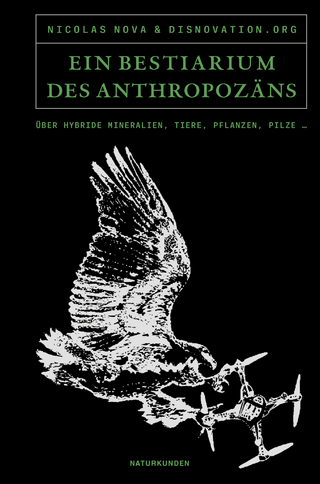
Darwin
Seiten
2006
Routledge (Verlag)
978-0-415-34638-2 (ISBN)
Routledge (Verlag)
978-0-415-34638-2 (ISBN)
Charles Darwin (1809-1882) is best known as a biologist and natural historian rather than a philosopher. However, in this invaluable book, Tim Lewens shows in a clear and accessible manner how important Darwin is for philosophy and how his work has shaped and challenged the very nature of the subject.
In this invaluable book, Tim Lewens shows in a clear and accessible manner how important Darwin is for philosophy and how his work has shaped and challenged the very nature of the subject.
Beginning with an overview of Darwin’s life and work, the subsequent chapters discuss the full range of fundamental philosophical topics from a Darwinian perspective. These include natural selection; the origin and nature of species; the role of evidence in scientific enquiry; the theory of Intelligent Design; evolutionary approaches to the human mind; the implications of Darwin’s work for ethics and epistemology; and the question of how social and political thought needs to be updated in the light of a Darwinian understanding of human nature. A concluding chapter assesses the philosophical legacy of Darwin’s thought.
Darwin is essential reading for anyone in the humanities, social sciences and sciences seeking a philosophical introduction to Darwin, or anyone simply seeking a philosophical companion to Darwin’s own writings.
In this invaluable book, Tim Lewens shows in a clear and accessible manner how important Darwin is for philosophy and how his work has shaped and challenged the very nature of the subject.
Beginning with an overview of Darwin’s life and work, the subsequent chapters discuss the full range of fundamental philosophical topics from a Darwinian perspective. These include natural selection; the origin and nature of species; the role of evidence in scientific enquiry; the theory of Intelligent Design; evolutionary approaches to the human mind; the implications of Darwin’s work for ethics and epistemology; and the question of how social and political thought needs to be updated in the light of a Darwinian understanding of human nature. A concluding chapter assesses the philosophical legacy of Darwin’s thought.
Darwin is essential reading for anyone in the humanities, social sciences and sciences seeking a philosophical introduction to Darwin, or anyone simply seeking a philosophical companion to Darwin’s own writings.
University of Cambridge, UK
Introduction: ‘A Philosophical Naturalist’ 1. Life 2. Selection 3. Species 4. Evidence 5. Mind 6. Ethics 7. Knowledge 8. Politics 9. Philosophy. Glossary. References
| Erscheint lt. Verlag | 27.10.2006 |
|---|---|
| Reihe/Serie | The Routledge Philosophers |
| Verlagsort | London |
| Sprache | englisch |
| Maße | 138 x 216 mm |
| Gewicht | 400 g |
| Themenwelt | Geisteswissenschaften ► Philosophie |
| Naturwissenschaften ► Biologie ► Allgemeines / Lexika | |
| Naturwissenschaften ► Biologie ► Evolution | |
| Naturwissenschaften ► Biologie ► Humanbiologie | |
| ISBN-10 | 0-415-34638-X / 041534638X |
| ISBN-13 | 978-0-415-34638-2 / 9780415346382 |
| Zustand | Neuware |
| Haben Sie eine Frage zum Produkt? |
Mehr entdecken
aus dem Bereich
aus dem Bereich
Über hybride Mineralien, Tiere, Pflanzen, Pilze ...
Buch | Hardcover (2023)
Matthes & Seitz (Verlag)
28,00 €
Band 2: Elektrizität, Optik und Wellen
Buch | Softcover (2022)
Wiley-VCH (Verlag)
39,90 €
Berufsbilder von und für Biologen und Biowissenschaftler
Buch | Softcover (2024)
Verband Biologie, Biowiss. u. Biomedizin in Dtl. e.V. (Verlag)
16,80 €


